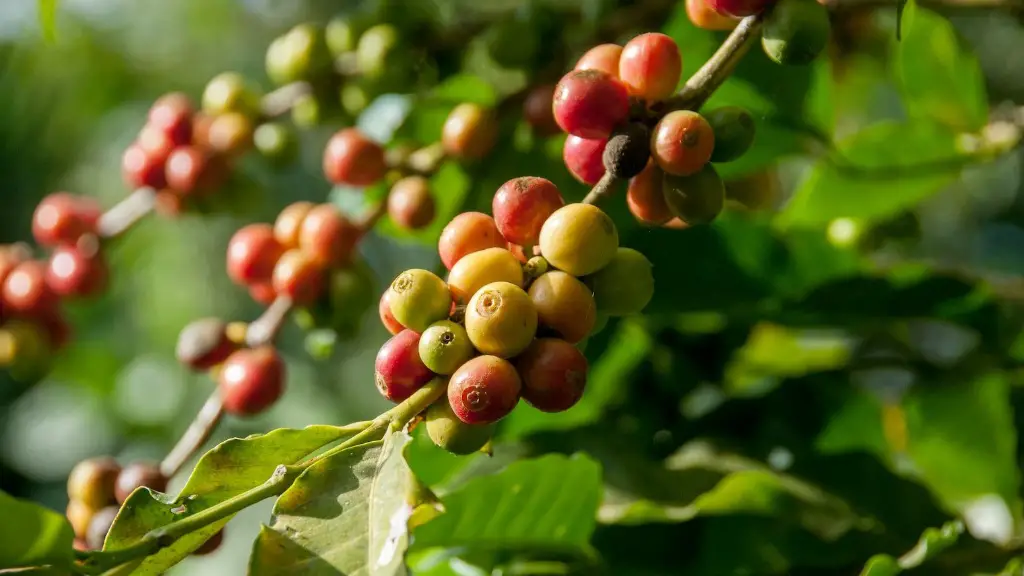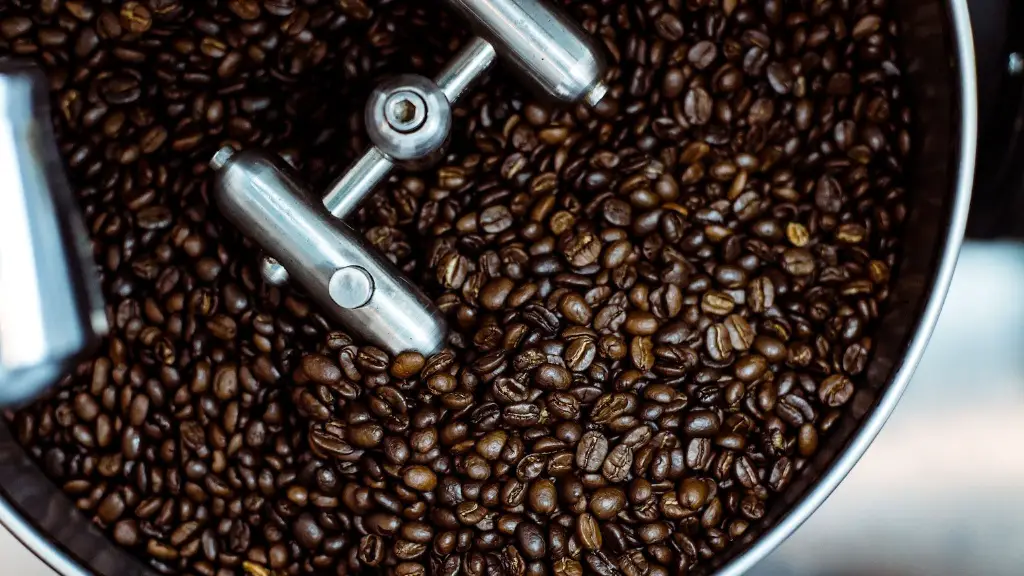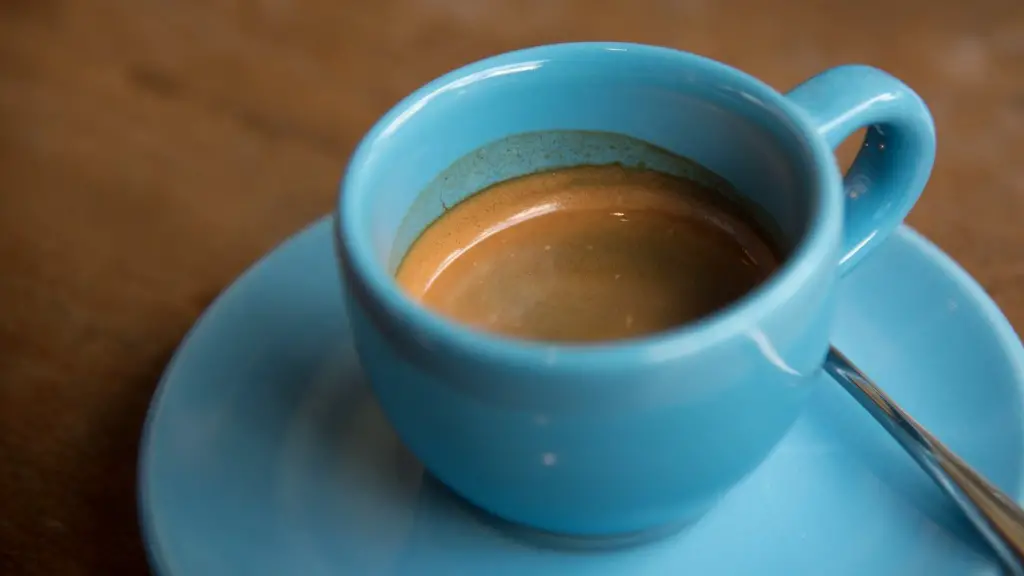Coffee and energy drinks are two of the world’s most popular beverages. Both caffeine-based options offer a quick energy boost, but which one is right for you? It depends on your individual needs and goals. In this article, we explore the differences between coffee and energy drinks, plus how each can impact your energy levels.
Background Information
Coffee is a brewed drink made from roasted beans of the coffee plant. It is most commonly enjoyed as a hot, caffeinated beverage and is enjoyed around the world. Coffee contains caffeine, a stimulant which is responsible for the energy boost it provides. On average, one 8-oz cup of coffee contains 95 mg of caffeine.
Energy drinks, on the other hand, are a type of caffeinated drink formulated to increase energy and alertness. Unlike coffee, energy drinks are available in different flavors and often contain additional ingredients like herbs, botanicals and vitamins. Most commercial energy drinks contain upwards of 70-205 mg of caffeine per can.
Relevant Data and Perspectives from Experts
According to a study published in the International Journal of Cardiology, caffeine doses of 2-6mg/kg can improve cognitive function, alertness, and physical performance. However, when the dosage exceeds 6mg/kg it can produce unpleasant side effects such as anxiety, insomnia, and jitteriness. Based on this study, it’s important to consider how much caffeine is in your coffee or energy drink before consuming.
Dr. Mark Hyman, MD, says “Coffee or tea is a great choice if you need your caffeine fix, but many people get too much. More than three cups of coffee a day can interfere with sleep and increase anxiety. Be aware of the amount you’re having and your own individual tolerance for the stimulant.”
Registered dietitian nutritionist, Ashley Koff RD, said “If you are in need of caffeine and some increase in energy, coffee is going to be my top choice. While energy drinks can have empty sugar calories and lack in providing valuable nutrition”.
Own Insights and Analysis
Caffeine is a natural stimulant and when consumed in appropriate doses can be beneficial. However, when consumed in excessive amounts, caffeine can lead to adverse effects. Therefore, it is important to be mindful of how much caffeine you are consuming and to be aware of your own tolerance to the stimulant.
For those looking for an energy boost, coffee is the better choice than energy drinks. Coffee isn’t loaded with sugar and is typically lower in caffeine than energy drinks.
Coffee and energy drinks are fashionable, heavily marketed beverages. Consumers must be conscious of the macros, ingredients and caffeine levels that each of these drinks contain. Ultimately, both coffee and energy drinks can offer a quick energy boost. The best choice for you depends on your individual caffeine tolerance and preferences.
Caffeine Content
While both coffee and energy drinks contain caffeine, the content varies greatly between the two. Coffee tends to contain less caffeine compared to energy drinks. An 8-ounce cup of coffee typically contains 95 mg of caffeine while one can of energy drink can contain upwards of 205 mg of caffeine.
Moreover, coffee and energy drinks differ in the way their caffeine is delivered. Caffeine from coffee is absorbed by the small intestine and enters the bloodstream within 30-45 minutes. Meanwhile, energy drinks are absorbed faster because of their liquid consistency, leading to a faster release of caffeine.
It is important to note that the caffeine content of coffee and energy drinks is not regulated, so it is important to read the labels to determine exactly how much caffeine is in a serving.
Caffeine Sensitivity
Although the effects of caffeine can vary from person to person, research shows that the majority of people are sensitive to the effects of caffeine.
It’s important to bear in mind that drinking coffee or energy drinks too late in the day can lead to sleep disturbances. For those easily affected by caffeine, limiting intake to one cup of coffee in the morning and early afternoon is best.
Individuals who are more sensitive to caffeine’s effects should consider decaffeinated coffee or regular green tea. These beverages contain lower levels of caffeine and can provide an energy boost without the adverse side effects of too much caffeine.
Nutritional Value
Despite the energy-boosting properties of both coffee and energy drinks, neither are particularly nutritious. Coffee does have some beneficial compounds and is naturally low in calories. But energy drinks contain additives and added sugar, which can be detrimental to health.
If you’re looking for an energy-boosting beverage that is also nutritious, opt for a smoothie or another beverage sweetened with fruit or honey. Smoothies are a great option as they can be customized to your individual needs and can provide a healthy dose of nutrients, antioxidants, and natural energy.
Health Concerns
Drinking too much coffee can lead to several negative side effects. These include restlessness, irritability, headaches, insomnia, and increased heart rate. It is important to monitor the amount of coffee that you drink and to be aware of any negative side effects.
Similarly, energy drinks can also cause adverse side effects. Ingestion of high amounts of caffeine can lead to serious health implications. For this reason, it is important to read the labels of energy drinks to make sure you are aware of their potential risks.
Alternatives
If you’re looking for an energy boost without caffeine, there are plenty of non-caffeinated beverages that can provide a welcome pickup. Matcha tea is a great option, as it is rich in B vitamins, amino acids and antioxidants. You can also opt for an herbal tea or fruit-based beverage. These options contain natural sweetness and can provide an energizing pick-me-up without added sugar or stimulants.
Environmental Impact
The coffee and energy drink industry have come under scrutiny from environmentalists. Coffee production has been linked to deforestation and energy drinks to high levels of plastic waste.
Organically sourced coffee is a more eco-friendly choice, as it does not contribute to deforestation. And for energy drinks, glass bottles or cans are a better choice than single-use plastic bottles.
For those concerned about their environmental impact, opting for more eco-friendly beverages is the best option.
Risk of Addiction
Due to their high levels of caffeine, both coffee and energy drinks can be addictive. Caffeine can affect the brain’s pleasure center and regular consumption can lead to dependence. If you think you are starting to develop a dependence on caffeine, it is important to seek help.
Caffeine addiction is real and consuming too much can lead to adverse side effects. If you think you are becoming dependent, it is important to talk to a doctor or therapist about ways to reduce your caffeine intake.
Bottom Line
Coffee and energy drinks both offer a quick energy boost. However, the caffeine levels and additional ingredients can vary greatly between the two. In general, coffee is the better choice for those looking for an energy boost, as it is typically lower in caffeine and generally considered safer than energy drinks.
At the end of the day, both coffee and energy drinks can provide a much-needed pick-me-up. It is important to monitor how much caffeine you are consuming and to be aware of your individual needs and goals.





